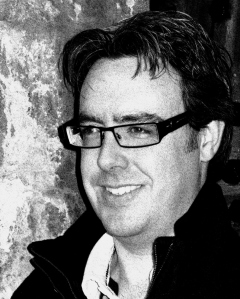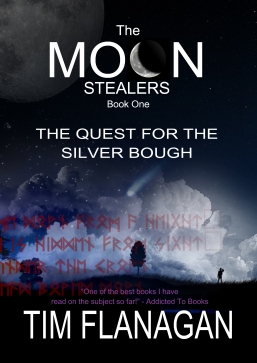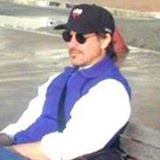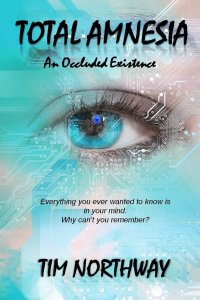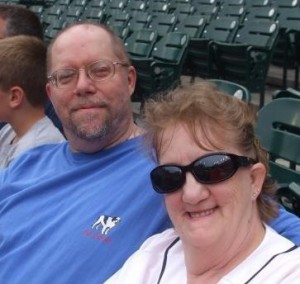I want to share this interview with you all. MRS. D is an award-winning children’s author who moved from the Ukraine to the United States of America. She brought with her some wonderful ideas about children’s books and the desire to write them. It’s important that we teach our children to read and I think I’m safe when saying that MRS. D agrees with me when I say that books can be the best friend of a child.
Enjoy this interview and don’t forget to download a copy of her charming book “The Trees Have Hearts.” It’s FREE at the moment on Amazon and every download will make more children aware of the wonders of reading.
How would you describe your books? Do you write in more than one genre? What are they?
When I write, I never think into what genre my story will fit. A good story always finds its place and reader. I often mix realistic fiction with modern fantasies. I think these two styles describe my books best. I twist true events with unrealistic characters, which teach children to conquer problems, build self-esteem, and overcome challenges in their lives. They also show young readers the beauty and power of nature and help them learn about the true meaning of friendship and family. It also helps them better connect to the surrounding world and care for our younger friends, the animals. I do not think that mixing two genres confuses young readers. Children easily connect to imaginary characters and often see themselves or their behavior from a different perspective.
I also like to write short stories for adult readers. I am presently working on my first novel, The Chinese Princess, and a short story, A Taste of Bread. Let’s see where my restless imagination takes me.
How long have you been writing? How long did it take to write your book? And what motivated you to write it?
I have been writing since I learned to hold a pen. I wrote my first poem when I was six. Throughout my school years, I wrote many short stories and poems in both Ukrainian and Russian. I started writing in English in 2011. Since then, I have published five children’s books. Three more are coming this year and a few more will be published in the near future.
I do not have a particular plan or schedule. I write when I feel the story, when I can’t think of anything else—just the words transforming into sentences, filling my brain until I cannot sleep. That’s how I know I have something to share. I write because I love to get lost in the imaginary world full of beautiful characters, words, and phrases.
I write because I want the same experience for the reader. I never treat writing as a job. The story should come from the heart, from the soul, from emotions, and ripen over time. Before I put my story on paper, I must feel it in my whole being. Then I know I can bring it to the reader.
I don’t look for motivation, either. I am a child of the post-WWII generation. I grew up in the Soviet Union. Each day of my life was a story. Sometimes I feel I have already lived a hundred lives. My life is my story. I am not sure if I am lucky or cursed.
Do your books stand alone, or are they part of a series? If they are part of a series, how long will the series run?
We all know that no matter how many children’s books are already written, there will never be enough stories for young readers. Most of my children’s books are published as separate stories, but any of them could be part of a series if I chose to develop them further. The problem is, I have too many stories; and is it unlikely they will all be a series. However, I gave Carlo the Mouse the chance to develop into a series.
In 2012, I published my first book, Carlo the Mouse on Vacation. It is about a hospital mouse who dreams about life outside the hospital. I was quite delighted when children started asking me what Carlo did when he was a baby. I thought about it, and then I wrote six more books about Carlo growing up in the hospital. You must already get the feeling that things did not go well for the restless and always hungry mouse. Last year I published Carlo the Mouse, Book 1: Too Many Rules for One Little Mouse. Carlo the Mouse, Book 2: Now We’re Talking! is coming at the end of 2014. So far we have illustrated six books, which will be published between 2014 and 2016.
Five more books on Carlo the Mouse are already written, edited, and ready to go to the illustration stage. I think we will have 11 books by the end of 2017. I have the feeling this series will go on, because the last letter I received from a little boy was titled: May the Story of Carlo the Mouse Never End.
I have a surprise for older readers, as well. The Little Girl Praying on the Hill will be published this summer. I am already working on the sequel for this book, A Taste of Bread. These are short stories, which I will continue to write as long as I have memories of my life in the Soviet Union.
Describe the main characters of your stories.
Usually I turn for help to nature. It never refuses to give me the inspiration for the characters I am looking for in my stories. I am fascinated by the wonders of nature, especially with the wind, trees, palms, and all kind of animals. They are wonderful characters for children. With the help of these characters, children will learn about how things change and behave in nature, and sometimes how they misbehave.
Is there any symbolism in your books that you’d care to share with potential readers?
I write children’s books that have meaning. My books are not simple; they are intended to make the young reader stop and think about the message that the story is delivering. I am a strong believer in good-quality illustrations—calming, but fun. Nothing drastic or overpowering. My books are colorful and represent the story before a child starts reading it. They are creative and perfect for a child’s growing mind. Parents can easily discuss or explain them to a child who cannot read yet.
Do any of the characters resemble you? How about friends or relatives?
Authors are often advised to write what they know best. That includes family, children, cats, and me. The Trees Have Hearts is based on my younger daughter, who could not speak English when we arrived in the United States. She was five years old, and it was heartbreaking to see her friendless because she did not fit in.
The City Kittens and the Old House Cat is based on my family and Nyda the cat, who plays some role in the Carlo the Mouse series, as well.
Runaway Clothes is a story about a little girl who did not like to take care of her clothes. As you’ve already guessed, this story is based on my children when they were young.
Good Morning, World! is an observation of my first grandson, Baby Thomas, and some people I know. We will keep their names secret.
Carlo the Mouse on Vacation is about a mouse that fell inside our car trunk when we visited our father in a Florida hospital.
The Royal Palm was unfolding in front of my eyes when I witnessed a hurricane. This is a great teaching story about a beautiful but very self-centered royal palm that learned a lesson about the real meaning of friendship when a massive storm struck.
The Little Girl Praying on the Hill has a very close connection to my early childhood in Ukraine. As you can see, I write about what I know best—life.
What is the worst thing reviewers or critics have said about your book?
Appalling! I lost sleep over this review. I felt crushed for weeks! This was my first book, and I worked so hard to bring this story to the readers. I created this book so that it could appeal to children and grown-ups. It is a fun, whimsical story, with a few unusual twists that should make readers smile. The problem is that the person who wrote that review took this story out of context. The funniest part is that whomever wrote this review did not buy the book and did not leave any contact information. I was dying to ask her how she knew so much about this book if she did not buy it. I have my suspicions, but as my grandpa would say, if you are not caught, you are not a thief. Thank God, children felt differently and gave Carlo a chance. This book gave birth to the Carlo the Mouse series. Book 1: Too Many Rules for One Little Mouse, is published and is receiving great reviews. Who knew?
What is the best thing reviewers or critics have said about your books?
I love this question. I submitted Good Morning, World! for editorial review to Readers’ Favorite. This book is about a happy Baby Thomas and his grouchy grandpa. While walking in the park they see the same things, but from a different perspective.
The key message of this book was simple: each of us has a choice, and we can wake up miserable or happy. I also wanted to show the reader how two people seeing the same things could draw very different conclusions. And, of course, I wanted children to have fun with the Grandpa character, whom I exaggerated for a reason: to show them how they may appear to others when they are grumpy.
This story brought so many discussions that I immediately landed on the “Grandpa Hit List,” including my husband, to whom this book was dedicated. Lesson learned … never underestimate the power of grandpas!
Have you tried submitting your book to publishers? Would you still want to work with a traditional publisher now that you have self-published?
No, I did not submit any of my children’s books to traditional publishers. By self-publishing, I have a better grip on my books. I like to break rules. My books are much longer than traditionally published books and they do not fall into the “cool” category.
When I came to the United States, my children were shocked by how short American children’s books were. Many times I had to come up with my own stories to make up for the story that my children found in American books.
I also love good-quality illustrations. With traditional publishers, I would not be able to work with the illustrator. Once I decided to self-publish children’s books, I cut no corners. Good illustrations are not cheap, but they help children envision the story before they read it. If the book is well-illustrated, then much younger children who can’t yet read can also enjoy the book.
What has been the most difficult part of your writing experience? Dealing with publishers, agents, editors, getting reviews, query letters, what?
All of the above! Except for the editor, with whom I have a great working relationship. Nothing comes easy when you self-publish. Self-publishing children’s books is like landing on another planet, or like going back to school. You must learn everything from scratch.
The bad part of this business is that I must learn everything and work through my own mistakes. Luckily, I was always a great student and good businessperson. I believe in high-quality products and take pride in everything I do. I also believe in honest reviews. Sadly, most readers do not leave reviews. It is time-consuming, or they just do not think that leaving a review is that important.
You did not mention marketing. It is not my cup of tea. I would rather write 700 pages of a history novel than spend so much time on social media. The good thing about social media is that it allows me to meet some great people, fellow authors, and get the information I need. But it leaves no time for writing.
Describe your writing process. Do you outline, create rough synopses, do you do detailed biographies of the characters before starting to write?
I usually dig for the story deep inside my heart and memories. I like to write in my head. I have so many untold stories waiting for their time. I write when I feel that the story is ready to escape. Then I kill it, and take a skeleton and feed it with ideas until it gets fat and happy. Sometimes, I get carried away, and I have to trim my stories, but this is an easy task. It’s always easier to destroy than to build.
Describe where you do your writing.
Mostly I write in my sunroom or on my balcony, when I am staying in Florida. I share my table with my unpredictable cat, who has adopted my knees and computer. She has deleted many of my pages, but I forgive her because she is the main character of my future books, and I need her to feed my imagination.
If you had to do the experience of writing your work over, would you still write it? Would you change it? How?
As my grandpa would say, there is no point in swinging fists after the battle is over. Every day brings new ideas, and if we were to change everything we wrote before, it would be a completely different story. I do not know one author who is completely satisfied with their writings. I try to stick to my old versions. I may edit some sentences or change some words or paragraphs, but this is as far as I go.
How did you choose the story you wrote?
I do not choose the story; the story chooses me. Mostly, I relived my stories or observed them somewhere. Stories are everywhere; I just have to use my imagination. I write what I know, not what sells. This may sound like a bad business decision, but this is the only time I do not treat writing like a business. I write my stories from the heart.
How did you choose the title?
Sometimes the title just popped in my head. Sometimes I go through the story and find a few lines which I think describe the story best. Then I send a few samples to my editor, and I ask my husband what he thinks, and then I choose the one I think fits the story. I still do not know why it annoys my husband.
How did you decide on the cover and did you design it or did you use a professional designer?
I work closely with a few illustrators. Usually, we create the illustrations and then we see which illustration fits the cover best. If we did not find the perfect fit for the cover, then we create a new illustration that will reflect the story. I love working with illustrators. I have learned a lot since I published my first book. It is a fun process to bring a story to life. Between my words and their imagination, we are a great team.
Can you summarize your book in 140 characters or less (Tweet size)?
This is a little tricky, because I have more than one book. All of them are dear to my heart, and I find it hard to talk about only one book. So let’s go with Mrs. D’s Books.
Mrs. D.’s books will not only capture a child’s imagination but will also teach children the true meaning of friendship, family, love, and self-acceptance. Brace yourself for an unusual journey!
How is that?
Who were the authors that influenced you? What about them and their style appeals to you?
Growing up in the Soviet Union, I did not have many books to satisfy my hunger for reading. I lived in a small village, lost in the Carpathian Mountains, cut off from the rest of the world and civilization. There were few books available for children when I was growing up. We had a tiny library in the village. As a child, I read adult books in Ukrainian and Russian, hardly understanding the meaning of the words. Most of these books were about WWII or the famous classics from authors like Alexandre Dumas, Victor Hugo, Jack London, Mark Twain, the Brothers Grimm, Hans Christian Andersen, and many more.
In my time, children’s books were not heavily illustrated, but they were so well written that I have no problem imagining the stories without the pictures. I reread many children’s books and learned about new writers when I became a mother. It’s impossible to list every great children’s author, but here’s a start: Beatrix Potter, Margret and H.A. Rey, Robert McCloskey, Steven Kellogg, Ruth Krauss Margaret, Wise Brown, and many more who wrote simple teaching stories for children, touching hearts and minds.
There are many more good writers who’ve crafted a whole stream of books based on one character they created: Ian Falconer with Olivia , Russell and Lillian Hoban with Frances , Eric Hill with Spot , and Bernard Waber with Lyle the Crocodile, and many more. I also love good writers who typically write for older children, such as Beverly Cleary, C. S Lewis, Madeleine L’Engle, and Laura Ingalls Wilder.
What did you learn that surprised you while writing your book? What was the most difficult part?
English! That I was actually using it, writing in a language I did not grow up with, had never properly learned, and felt very uncomfortable with. That I was able to transform my imagination into English words. I am still amazed that I did not get lost in a foreign language while learning all the aspects of writing, publishing, and marketing. English had scared me since high school. I was so afraid that I would fail. By nature, I am a very determined person and do not give up easily.
What types of hobbies do you have? Do these activities find their way into your books?
Sadly, I have no time for hobbies. My life reminds me of a runaway train, which I am trying to catch and somehow slow down. If the day had 48 hours, then I would collect cats. I love cats. They remind me a little bit of myself. Nobody can own them unless they allow you. But for now, I can hardly manage one cat, which practically takes care of me. If she did not insist on food, I would never remember I have not eaten either. However, I like gardening and flowers, beaches and walks, traveling and art, reading and books. Life is a roller coaster; hold on tight to catch all the moments.
What is your favorite time of the year and why? And did you incorporate that into your story? How?
People say there is beauty in every season, but I love summer with its sun-drenched days and moonlit nights, the glowing dawns and peaceful mornings, the graceful flowers, full of love and poise, the maturing trees bathed in the warm air, the sunlit sky, blue like my mother’s eyes, the gentle butterflies expressing freedom, and short warm rains expanding life. And fiery orange sunsets, reminding me of my first kiss with a village boy. I love summer because I am nature’s child who enjoys it when everything blooms and grows.
I did not include this piece in any of my books. I just wrote it.
Have you traveled at all? How has that experience helped in your writing career?
I was born in western Ukraine, on the border of Poland, then Czechoslovakia and Hungary. I did not travel until Gorbachev came to power. Then I traveled to some European countries. Since I immigrated to the United States, I have traveled to England, Spain, Morocco, Italy, France, some Caribbean islands, and many more. I have more trips planned, but sadly, the situation in the world may not allow me to visit my country or other countries I really want to explore.
What do you feel is the best personal quality you bring to your writing career?
My experience and knowledge as a mother and a woman. I write because I know that somewhere in this world someone may need my experience and advice. I write because I have lived my life to the fullest and learned many lessons. I write because I have something to share. If my knowledge helps one child, then it will be worth my effort.
What types of books do you read for entertainment?
I wish I had more time for reading. I try to read as often as I can. My fellow authors often ask me to review their books, and I do. Lately, I read a wonderful new manuscript by one of the great local authors, Joseph Wilkins, who has written two historical novels. You may find his books on Amazon. His new memorial about poverty in America touched me deeply. Sometimes I feel nostalgic for old books, which I often reread. I read in three languages, so I follow new releases in the United States, Ukraine, and Russia.
Where do you see your writing career going? Why do you think that?
I think my career is going in the right direction. Since I typed my first story with two fingers on my daughter’s old computer, I have come a long way. Two of my books won prestigious Mom’s Choice Awards. People started noticing my books, written from the heart of a mother. They write me sweet emails, lovely messages, and great reviews. I am happy that some of my books have made a positive impact and difference in children’s lives. I am moving ahead and am ready to conquer the world! I pray to God and hope that the world is ready for me.
Do you have a special theme, or design that you intend to continue throughout your career as your signature item?
Yes, I do. My books are well known for being colorful, happy, calming, and fun. They are good-quality books, which entertain children and parents. I also have the Mrs. D. Books logo of a tiny mouse, which is placed on each of my books. You may find it on my website.
What happens next? What are your future writing plans?
Self-publishing children’s books is very different from publishing novels or romances. It involves a lot of work with editors, illustrators, and publishers. It is a costly process and very time-consuming. I have already published five children’s books: Carlo the Mouse on Vacation, The Trees Have Hearts, The City Kittens and The Old House Cat, Good Morning, World!, and Carlo the Mouse, Book 1: Too Many Rules for One Little Mouse.
My new book Runaway Clothes is coming this spring. Three other new books—The Royal Palm, Carlo the Mouse, Book 2: Now We’re Talking! and The Little Girl Praying on the Hill—are coming this year.
I am planning to publish That Is How Things Are, Who Is Most Important In the Fridge?, The Mysterious Life Inside the Closet, and five books in the Carlo the Mouse series in the near future. They are all illustrated and ready to go.
What is your end goal for your writing career?
As you can see, I have no writer’s block, but I may have a financial block.
I am presently working on a new children’s book, The Cat Who Wonders, by Itself, and my second short story, A Taste of Bread. I have also started my first romance, The Chinese Princess. I have many stories in my head, but I am afraid I would not be able to write them down before I get really old. For now, I will concentrate on writing for adult readers, but I will never stop writing for children. If some good story comes to me, I will definitely share it with my little friends. I am still a child at heart. I will love children’s books forever.
Do you use a pen name?
There is no secret to this story. I am known as Mrs. D. because my children’s friends call me Mrs. D. I thought it was a perfect name for children, easy to pronounce and remember. However, my new books for adult readers will be published under my real name, Olga D’Agostino.



